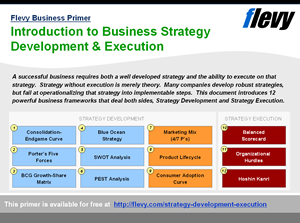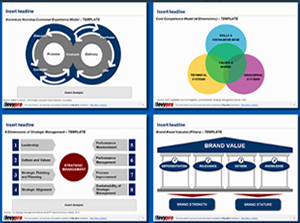Editor's Note: Take a look at our featured best practice, 5S Poster (3-page PDF document). 5S good housekeeping and workplace organization is a set of basic management principles that are widely adopted in industries today. The cornerstone of 5S is that untidy, cluttered work areas are unproductive. 5S is a powerful improvement process that gets impressive results. In a nutshell, the [read more]
Top 4 Time Wasters Identified and Ways to Increase Productivity
* * * *

Poor time management can be related to procrastination, as well as problems with self-control. Skills involved in managing your time. include planning for the future, setting goals, prioritizing tasks, and monitoring where your time actually goes
A McKinsey study solicited responses from nearly 1,500 executives across the globe to describe how they spent their time, revealing that only 9 percent of the respondents deemed themselves “very satisfied” with their current allocation. Less than half were “somewhat satisfied”, and about one-third were “actively dissatisfied.” What’s more, only 52 percent said that the way they spent their time largely matched their organizations’ strategic priorities. Nearly half admitted that they were not concentrating sufficiently on guiding the strategic direction of the business. These last two data points suggest that time challenges are influencing the well-being of companies, not just individuals.
Download the Time Management template and I will review the top four time wasters and provide potential solutions you can implement today.
Top 4 Time Wasters Identified and Ways to Increase Productivity
1. Meetings
The top time waster are meetings.
Some ways to increase productivity in meetings are to schedule meetings in Outlook or other calendar software solutions, list the criteria in the meeting invitation, provide meeting purpose, objectives and desired outcomes, and align the meeting to either a strategic initiative and/or corporate strategy. By aligning the meeting to a strategy, this enables individuals to align their activities and tactics to meeting business objectives.
2. Email Communications
The second most time waster are email communications.
Some ways to increase productivity for reading and responding to emails are to remove your name off of distribution lists, utilize technology to place discussions copied on (Cc) into “Review Later” folder, utilize technology to place unwanted items in spam/junk folder, respond to emails that are deemed important or have a “Respond by” date and utilize technology to identify emails from persons who require an immediate response (e.g. CEO, CFO, COO, Manager). By utilizing technology and identifying email communications that require immediate responses, this will reduce time spent reading received emails.
3. Procrastination
The third most time waster is procrastination.
Some ways to reduce time procrastinating are to know what inspires you and why, complete the most important and productive task first, create a To-Do list, set major goals and know your skills. By understanding your skills, you can identify areas where leveraging others’ expertise could help increase productivity in meeting strategic goals.
4. Disorganization
The fourth most time waster is disorganization.

Do You Want to Implement Business Best Practices?
You can download in-depth presentations on Visual Workplace and 100s of management topics from the FlevyPro Library. FlevyPro is trusted and utilized by 1000s of management consultants and corporate executives.
For even more best practices available on Flevy, have a look at our top 100 lists:
- Top 100 in Strategy & Transformation
- Top 100 in Digital Transformation
- Top 100 in Operational Excellence
- Top 100 in Organization & Change
- Top 100 Management Consulting Frameworks
These best practices are of the same as those leveraged by top-tier management consulting firms, like McKinsey, BCG, Bain, and Accenture. Improve the growth and efficiency of your organization by utilizing these best practice frameworks, templates, and tools. Most were developed by seasoned executives and consultants with over 20+ years of experience.
Readers of This Article Are Interested in These Resources

|
|
190-slide PowerPoint presentation
|
|
189-slide PowerPoint presentation
| |||
About Arthur Burris
Arthur L. Burris has more than two decades of progressive business development and transformation experience that enabled him to significantly impact profitability and growth objectives by $2.4B for Fortune 500 enterprises PayPal, Microsoft, J.P. Morgan Chase and GE Financial Services. His understanding of complex business processes and financial principles and practices, including transfer functions, enables him to analyze enterprise needs and quickly develop plans and execute solutions to facilitate business initiatives that increases revenue, effectiveness and efficiencies, as well as reduce operating expenses. You can connect with Arthur on LinkedIn here.
Top 10 Recommended Documents on Visual Workplace
» View more resources Visual Workplace here.
» View the Top 100 Best Practices on Flevy.













